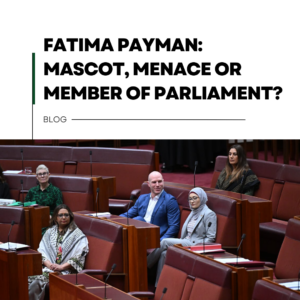Australia is deemed to be one the most multi-faith, multilingual and multicultural countries in the world.
We firmly believe in the value of diversity. Any type of discrimination is contradictory to the teachings of Islam. It is the beauty which lies in diversity which allows us to learn from one another and develop in various facets of life. We reject discrimination and affirm the Islamic principle of equality, demolishing all barriers of race, colour and creed which divide humanity. We firmly promote respect and equality among people belonging to one human race.
Islam highlights the unity of human fraternity in the Holy Quran.
It lays down the basis of all-comprehensive and all-pervading brotherhood and sisterhood. These verses describe that the worth of a person is not to be judged by the colour of their skin, rank, social or economic status, or any other discriminatory factors. Islam fosters mutual love and affection, human togetherness, and tolerance for others. It is these universal and profound teachings which create a universal human culture based on the unity and equality of mankind.
O ye who believe! let not one people deride another people [49:12].
The Holy Quran also categorically condemns discrimination between nations. Further, Islam does not grant precedence to one nation over another. True supremacy only lies in righteous conduct. During his final sermon, the Holy Prophet Muhammad (peace be upon him) emphasised this very point by saying:
“O People, your Lord is One, you are the progeny of the same father (who was created from dust). Hence it is not permissible for you to make any discrimination between high and low. Neither an Arab has superiority over a non-Arab, nor a non-Arab over an Arab. A white person is not superior to a black person one, nor a black is superior to a white. The most honourable among you in the sight of God is the one who is the most righteous..”
The Holy Prophet Muhammad (peace be upon him) being a universal messenger, was commissioned to create a distinct culture of tolerance and understanding.
Belonging to 7th century Arabia, where prejudices based on race, nation or creed were strongly ingrained within society, the Prophet of Islam came as a messenger of peace, teaching his people that such acts were totally against humanity and the teachings of Islam.
As a practical example, an African from Ethiopia by the name of Bilal was chosen by the Holy Prophet to deliver the call for prayer (Adhan) in his own mosque. This was a high honour which could not be imagined before the Prophet’s pronouncements. Once a Christian delegation was also allowed to hold their services of worship in the Prophet’s mosque.
At another time, addressing a large gathering of people, Prophet Muhammad (peace be upon him) vehemently stressed the same thoughts in the following words (only relevant sentences are quoted):
“You are brothers and sisters. You are all equal. No matter to which nation or tribe you belong and no matter what your status is, you are equal. Just as the fingers of both hands are alike, nobody can claim to have any distinctive right or greatness over another. The command which I give you today is not just for today but it is forever. Always remember to and keep acting upon it until you return to your true Master.”





